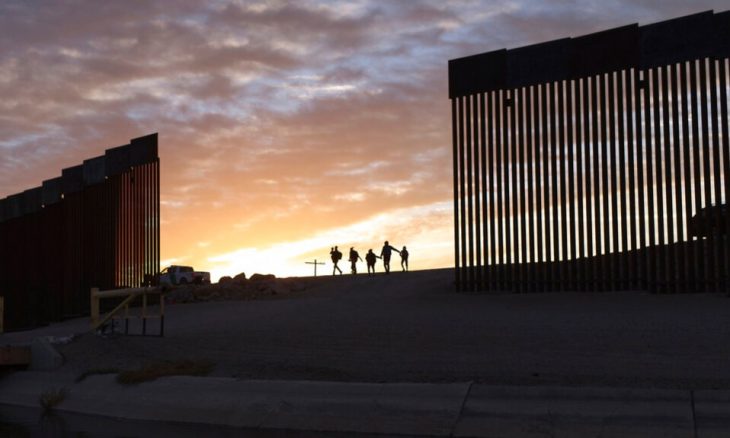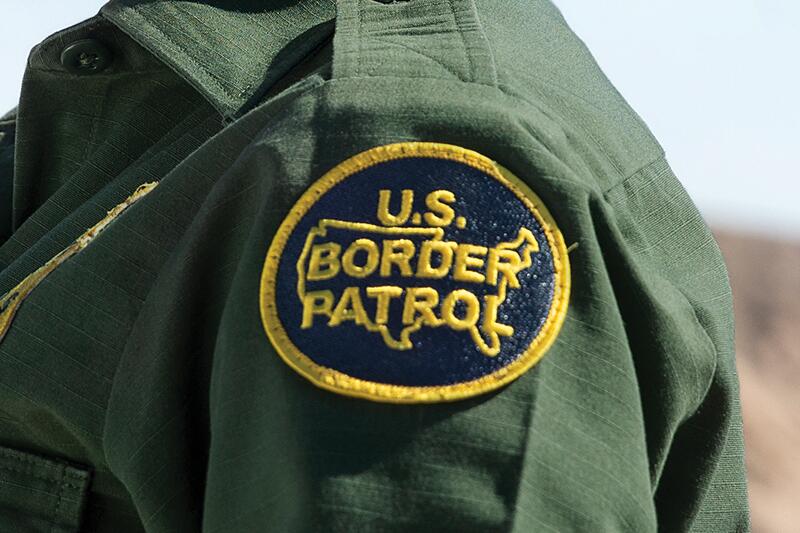Immigration: Balancing National Security, Prosperity, and Humanitarian Needs
PRAY FIRST for the U.S. officials who work to address the humanitarian crisis surrounding both legal and illegal immigration.
“And the King will answer them, ‘Truly, I say to you, as you did it to one of the least of these my brothers, you did it to me.’” – Matthew 25:40
With an estimated 50.6 million immigrants (about twice the population of Texas), the United States hosts the highest number of foreign-born residents globally. As of 2024, the unauthorized or undocumented immigrant population in the United States is estimated to be between 8 million and 11 million. This number represents individuals who reside in the U.S. without legal immigration status. The primary entry point of unauthorized immigrants is through the U.S.-Mexico border. However, according to recent data, approximately 63% of encounters at the southern border involve people from countries other than Mexico.
Immigration is largely viewed as a positive for both the receiving country and the individuals coming in. It can help stimulate economic growth and allow for labor market flexibility. It can provide cultural enrichment and diversity, and immigrants can contribute to research, academia, scientific advancements, and introduce new ideas and businesses. However, there is a balance that needs to be in place. Accepting too many immigrants at once can place a burden on a country’s infrastructure. This high influx can cause a strain on social and civic services, affecting economic stability by changing job competition. It can also be hurtful for the immigrants themselves as it increases housing costs and can lead to exploitation by employers. For this reason, most countries have a legal process for immigration.
Legal vs. Illegal Immigration
Legal Immigration is when individuals enter the U.S. with proper authorization and follow established laws and procedures. To qualify, someone seeking to immigrate to the United States must apply to obtain visas or green cards through family sponsorship, employment, diversity visa programs, or humanitarian reasons (such as refugees or asylees). Once accepted, they will have legal status, can work, pay taxes, and access certain benefits. They must also undergo background checks, interviews, and meet documentation requirements.
Another path into the United States is as an asylum seeker. Asylum seekers must demonstrate a well-founded fear of persecution based on race, religion, nationality, political opinion, or membership in a particular social group, from within the country they are fleeing. They have the right to remain in the U.S. while their cases are pending, and they may apply for employment authorization. After one year, asylees may apply for a green card to receive lawful permanent status.
The United States is the most sought-after country to immigrate to, and the legal process can take some time, usually at a minimum of a few years. Accessibility can also vary based on your country of origin. In response, many choose to bypass the process entirely and find alternative ways to enter the country illegally. Undocumented immigrants lack legal status and may face deportation. They often live in the shadows, face limited job opportunities, and lack access to social services.
Sanctuary cities are cities in the United States that have established policies that provide benefits to undocumented immigrants within their jurisdictions. These often include limited cooperation with Federal Immigration Authorities, such as declining to honor detainer requests from Immigration and Customs Enforcement (ICE). And they often will provide some access to city services such as education, healthcare, and emergency assistance.
Who is responsible for our borders?
Since 2020, President Joe Biden’s administration has sought to boost legal refugee admissions, address the humanitarian crises in the countries of origin to stem the causes of immigration, provide better citizenship recourses for DACA recipients, and increase federal funding to the agency that manages immigration (USCIS).
Despite these policies, immigration through the U.S.-Mexico border has ballooned in the past 4 years. This has resulted in some U.S.-Mexico border states challenging federal authority and implementing their own border enforcement measures.
The Supreme Court has consistently ruled that immigration falls under the authority of the federal government. The President of the United States has powers to extend executive orders in response to immigration needs, but ultimately the Constitution grants Congress the power to regulate immigration.
Biblical Mandate for Caring for Immigrants
Religious communities around the nation have stepped in to support refugees, asylum seekers, and undocumented individuals through financial aid programs, legal assistance, and community outreach. In each effort, they seek to embody the biblical mandate to care for immigrants, echoing the call to welcome strangers.
While the Bible does not dictate how a country should handle its immigration policies, it does consistently emphasize compassion for immigrants and strangers. In the Old Testament, the Israelites were commanded to treat foreigners with kindness and justice (Leviticus 19:34). Jesus reinforced this message, urging love and care for the marginalized (Matthew 25:35).
There will continue to be a need for balancing national security and immigration. And the Body of Christ has a place on the front lines. The government should and must respond to protecting its citizens from issues associated with mass migration. We as believers should respond with prayer, wisdom, compassion, and a heart after Jesus in caring for the sojourners, while still recognizing justice and the rule of law.
As we navigate these challenges, remember the biblical call to love our neighbors, regardless of their legal status. Let us pray for those in need, as well as for our leaders who must make decisions regarding how to care for our nation and for people around the world looking for help and opportunities.
HOW THEN SHOULD WE PRAY:
— Pray for God to be at work in and through our elected officials as they carry the responsibility to protect the nation’s interests through immigration policies and immigration law enforcement. Let every person be subject to the governing authorities. For there is no authority except from God, and those that exist have been instituted by God. (Romans 13:1).
— Pray for the Body of Christ and the willingness to be the hands and feet to love and care for those in need. Do not neglect to show hospitality to strangers, for thereby some have entertained angels unawares. (Hebrews 13:2).
CONSIDER THESE ITEMS FOR PRAYER:
- Pray for the president and administration officials as they create and modify immigration policies.
- Pray for those in Congress who work to draft and update legislation to address the immigration crisis.
- Pray for state and local officials on the U.S.-Mexico border as they are on the front lines of the issue.
- Pray for those who seek to enter the U.S. through the legal immigration process and are met with significant hurdles.
- Pray for God to show the Church how to respond with love and compassion to those in need.
Sources: WhiteHouse.gov, Prew Research, USCIS.gov, AllLaw.com, CATO.org, Catholic Extension, University of Alabama Birmingham, Congress.gov, House.gov, USA.gov, UCC.org,









